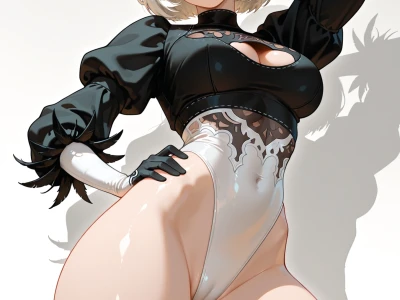
Saya Amanogawa - A sky full of Stars Sex by Malth
<p>Commission for Saya.</p><p>Huge thanks for the support!</p><p><em>All characters depicted are fictional adults over the age of 18, or have been aged up to be represented as such, and are engaging in consensual acts.</em></p>

Nadia Day/Night Personality Sex by RizzenWolf
<p>Sleepy nerd by day, freak in the sheets at night</p>

18+ Evelyn Chevalier Sex by D 7
<p>18+ Evelyn Chevalier (ZZZ) (74 illustrations)</p><p>The image in this article on Patreon has a lighter mosaic.</p><p>If you're interested, subscribe :)</p><p>Next post - Rory Mercury (Gate)</p>

Blair - Soul Eater Sex by Malth
<p><em>All characters depicted are fictional adults over the age of 18, or have been aged up to be represented as such, and are engaging in consensual acts.</em></p>

Umamusume Mix 2 Sex by RizzenWolf
<p>More horse gals getting railed</p>

18+ Rory Mercury Sex by D 7
<p>18+ Rory Mercury (Gate) (85 illustrations)</p><p>The image in this article on Patreon has a lighter mosaic.</p><p>If you're interested, subscribe :)</p><p>Next post - Artoria Pendragon (Ruler) (Fate)</p>

Ulti - One Piece Sex by Malth
<p><em>All characters depicted are fictional adults over the age of 18, or have been aged up to be represented as such, and are engaging in consensual acts.</em></p>

Chilli Heeler 2 Sex by RizzenWolf
Chilli Heeler 2 Sex by RizzenWolf

Yumeko Jabami from Gambling School Sex by Kinzuia chan
<p>(30 images NSFW + SFW) Full set of Yumeko Jabami from Gambling School</p>

Yuzuriha Ogawa - Dr. Stone Sex by Malth
<p><em>All characters depicted are fictional adults over the age of 18, or have been aged up to be represented as such, and are engaging in consensual acts.</em></p>

Pawbert Lynxley Sex by RizzenWolf
<p>Submissive lynx boy</p>

YoRHa No.2 Type B - Nier:Automata Sex by Malth
<p><em>All characters depicted are fictional adults over the age of 18, or have been aged up to be represented as such, and are engaging in consensual acts.</em></p>

Barista Glaceon 3 Sex by RizzenWolf
<p>You're her favorite customer, and it just so happens she wants you to stay past closing </p>
Azula - Avatar: The Last Airbender Sex by Malth
<p><em>All characters depicted are fictional adults over the age of 18, or have been aged up to be represented as such, and are engaging in consensual acts.</em></p>

18+ Rurikawa Tsubaki Sex by D 7
<p>18+ Rurikawa Tsubaki (maid kyouiku botsuraku) (+) (81 illustrations)</p><p>The image in this article on Patreon has a lighter mosaic.</p><p>If you're interested, subscribe :)</p><p>Next post - Maria Mikhailovna (roshidere)</p>

Erika - Pokemon Sex by Malth
<p><em>All characters depicted are fictional adults over the age of 18, or have been aged up to be represented as such, and are engaging in consensual acts.</em></p>